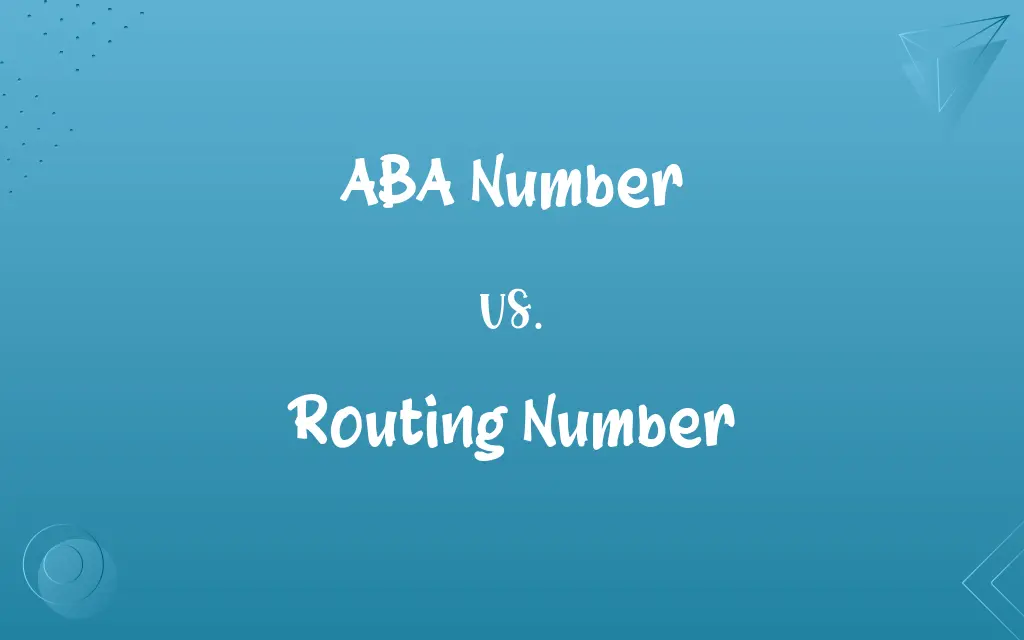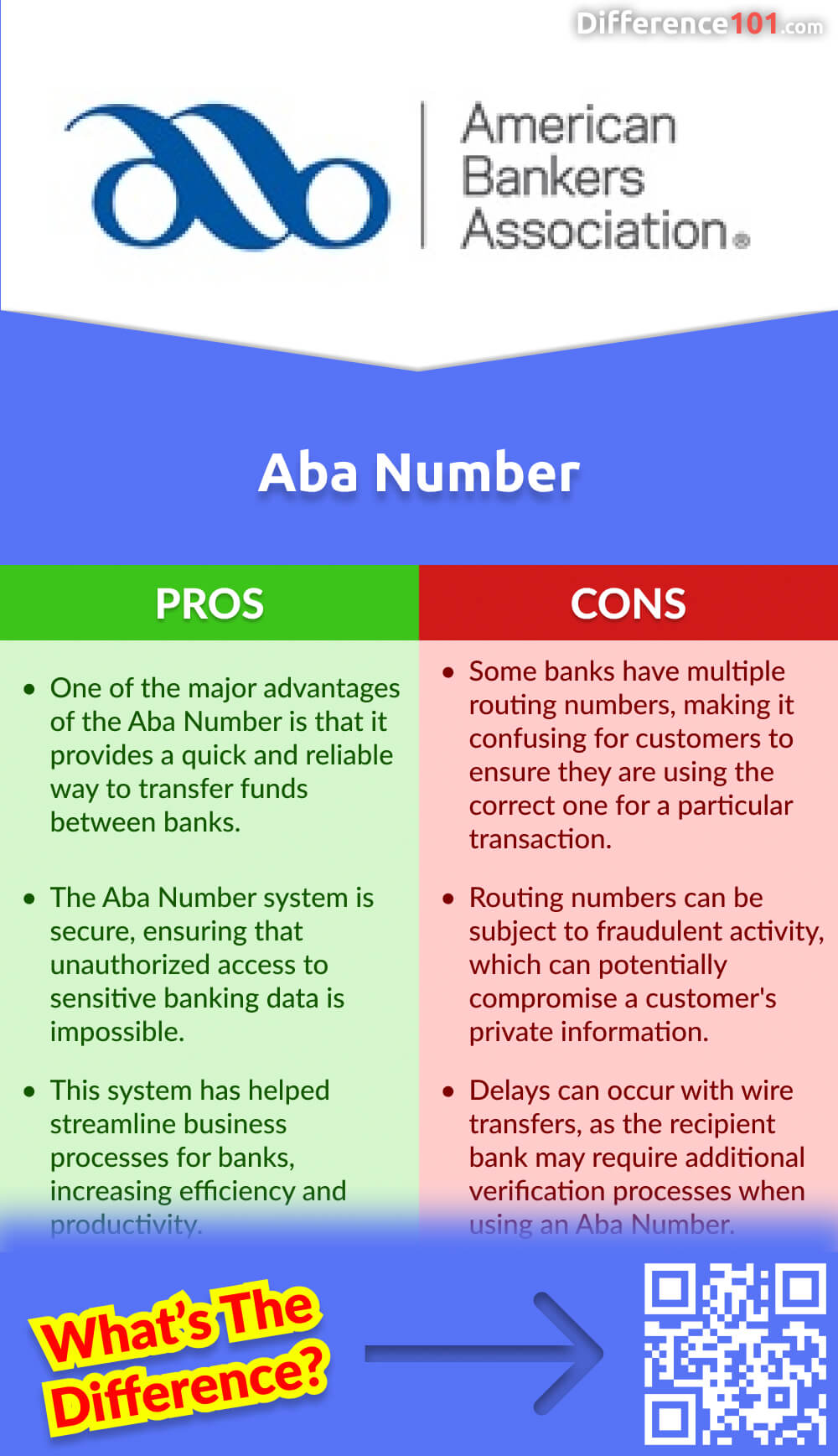When navigating the complexities of banking, terms like ABA and routing number often come up, but many people are unsure about the differences between them. Both terms refer to essential components of the financial system that facilitate transactions and ensure the smooth flow of money between institutions. In this article, we’ll delve into the distinctions between ABA vs routing number, clarify their functions, and provide actionable insights to help you better understand how they work in everyday banking scenarios.
Understanding these terms is crucial for anyone managing finances, especially when dealing with direct deposits, wire transfers, or checks. While ABA and routing numbers are often used interchangeably, they serve distinct purposes. This guide will break down their definitions, explore their roles in banking, and highlight key differences to empower you with the knowledge you need to navigate banking processes confidently.
Our goal is to provide clear, concise, and valuable information about ABA vs routing number, helping you avoid common pitfalls and make informed decisions. Whether you’re setting up automatic payments, transferring funds, or simply trying to understand your bank statements, this article will serve as a comprehensive resource.
Read also:Exploring The Enchanting Beauty Of Magnolia Plantation A Journey Through History And Nature
What Is an ABA Number?
Before diving into the comparison of ABA vs routing number, it’s essential to define what an ABA number is and its role in banking. The ABA number, also known as the American Bankers Association routing number, is a nine-digit code assigned to financial institutions in the United States. This code ensures accurate processing of financial transactions, such as checks or electronic transfers, by identifying the specific bank or credit union involved in the transaction.
ABA numbers were first introduced in 1910 to streamline check processing. Today, they remain a critical component of the banking system, helping to ensure that funds are routed to the correct institution. Each ABA number is unique to a specific bank branch, making it an indispensable tool for maintaining accuracy in financial transactions.
What Is a Routing Number?
Now that we’ve covered the basics of an ABA number, let’s explore the concept of a routing number. While ABA and routing numbers are often used synonymously, they refer to the same nine-digit code used to identify banks in the U.S. financial system. The term "routing number" is more commonly used in modern banking, particularly when discussing electronic transactions like direct deposits or wire transfers.
Routing numbers play a pivotal role in facilitating various types of transactions. For instance, when you set up direct deposit for your paycheck, your employer will require your routing number to ensure funds are sent to the correct bank. Similarly, when initiating a wire transfer, providing the correct routing number is crucial to avoid delays or errors in processing.
How Do ABA vs Routing Numbers Differ?
While ABA and routing numbers are fundamentally the same, their usage depends on the context in which they are applied. ABA numbers are primarily associated with check processing, while routing numbers are more commonly referenced in electronic transactions. This distinction highlights the evolving nature of banking terminology as financial systems adapt to technological advancements.
For example, when filling out a check, you’ll typically see the ABA number printed at the bottom. In contrast, when setting up online banking or initiating a wire transfer, the term "routing number" is more frequently used. Understanding this difference can help you avoid confusion and ensure accurate information is provided when required.
Read also:Unveiling The Legacy A Comprehensive Look At Steve Kerr Career Averages
Why Is It Important to Know the Difference Between ABA vs Routing Number?
Knowing the difference between ABA vs routing number can save you time and prevent costly mistakes. Whether you’re setting up a new account, transferring funds, or depositing checks, providing the correct information is crucial for ensuring smooth transactions. Misunderstanding these terms can lead to delays, rejected payments, or even penalties.
For instance, if you provide an incorrect ABA number when depositing a check, the transaction may be returned or delayed. Similarly, using the wrong routing number for a wire transfer could result in funds being sent to the wrong institution. By understanding the nuances of ABA vs routing number, you can avoid these pitfalls and maintain financial efficiency.
Can ABA and Routing Numbers Be Used Interchangeably?
One common question among banking customers is whether ABA and routing numbers can be used interchangeably. The short answer is yes, but with some caveats. While both terms refer to the same nine-digit code, their usage depends on the specific context of the transaction. For example, when dealing with check processing, the term "ABA number" is more appropriate, whereas "routing number" is preferred for electronic transactions.
It’s important to note that some banks may have multiple routing numbers depending on the type of transaction or the state in which the account was opened. Always verify the correct routing number with your bank to avoid complications.
How Do You Find Your ABA vs Routing Number?
Finding your ABA vs routing number is a straightforward process. The most common method is to look at the bottom of your checks, where the routing number is printed in the magnetic ink character recognition (MICR) line. Alternatively, you can find your routing number by logging into your online banking account or contacting your bank’s customer service team.
Some banks also provide routing numbers on their websites or mobile apps, making it easier than ever to access this critical information. Regardless of how you obtain your routing number, always double-check its accuracy before using it in any transaction.
How Are ABA Numbers Used in Banking?
ABA numbers serve as the backbone of the U.S. banking system, ensuring that financial transactions are processed accurately and efficiently. When you write a check, the ABA number helps identify the bank that issued the check and facilitates the transfer of funds from your account to the recipient’s account. This process is automated and typically completed within a few business days.
Additionally, ABA numbers are used in various other banking functions, such as processing ACH (Automated Clearing House) transactions, which include direct deposits, bill payments, and electronic fund transfers. By providing a standardized method of identifying banks, ABA numbers help maintain the integrity of the financial system.
What Are the Key Features of ABA vs Routing Numbers?
When comparing ABA vs routing numbers, several key features stand out. Both numbers consist of nine digits and are unique to each financial institution. However, their primary difference lies in their application and the context in which they are used. ABA numbers are primarily associated with check processing, while routing numbers are more commonly used in electronic transactions.
- ABA numbers are printed on checks and used for check processing.
- Routing numbers are used for electronic transactions like direct deposits and wire transfers.
- Both numbers are essential for maintaining accuracy in financial transactions.
Can You Have Multiple ABA vs Routing Numbers?
Yes, it’s possible for a bank to have multiple ABA vs routing numbers, depending on factors such as the type of transaction or the state in which the account was opened. For example, a bank may have separate routing numbers for wire transfers and ACH transactions. Similarly, some banks assign different routing numbers to accounts opened in different states.
To ensure you’re using the correct routing number, always verify the information with your bank. Many banks provide a list of routing numbers on their websites or through their customer service channels, making it easy to find the right number for your specific needs.
Is There a Difference Between ABA Numbers for Checks and Electronic Transactions?
While the ABA number itself remains the same for both checks and electronic transactions, its application varies depending on the context. For checks, the ABA number is used to identify the bank and facilitate the processing of the transaction. In electronic transactions, the routing number ensures that funds are transferred to the correct institution.
In some cases, banks may use different routing numbers for different types of transactions. For example, a bank may have one routing number for ACH transactions and another for wire transfers. Always confirm the correct routing number with your bank to avoid any issues.
What Happens If You Use the Wrong ABA vs Routing Number?
Using the wrong ABA vs routing number can lead to several problems, including delayed transactions, rejected payments, or even penalties. For instance, if you provide an incorrect routing number when setting up a direct deposit, your employer may be unable to send funds to your account. Similarly, using the wrong routing number for a wire transfer could result in the funds being sent to the wrong institution.
To avoid these issues, always double-check the routing number before initiating any transaction. If you’re unsure, contact your bank’s customer service team for clarification. Taking these precautions can help ensure your transactions are processed smoothly and efficiently.
Conclusion: Mastering ABA vs Routing Number for Financial Success
Understanding the differences between ABA vs routing number is essential for anyone managing their finances. Whether you’re writing checks, setting up direct deposits, or initiating wire transfers, knowing the correct routing number is crucial for maintaining financial efficiency. By familiarizing yourself with these terms and their applications, you can avoid common pitfalls and make informed decisions about your banking activities.
In today’s digital age, where electronic transactions are becoming increasingly common, mastering the nuances of ABA vs routing number can empower you to navigate the banking system with confidence. Always verify the correct routing number with your bank and stay informed about any changes to ensure seamless transactions.
Table of Contents
- What Is an ABA Number?
- What Is a Routing Number?
- How Do ABA vs Routing Numbers Differ?
- Why Is It Important to Know the Difference Between ABA vs Routing Number?
- Can ABA and Routing Numbers Be Used Interchangeably?
- How Do You Find Your ABA vs Routing Number?
- How Are ABA Numbers Used in Banking?
- What Are the Key Features of ABA vs Routing Numbers?
- Can You Have Multiple ABA vs Routing Numbers?
- Is There a Difference Between ABA Numbers for Checks and Electronic Transactions?


